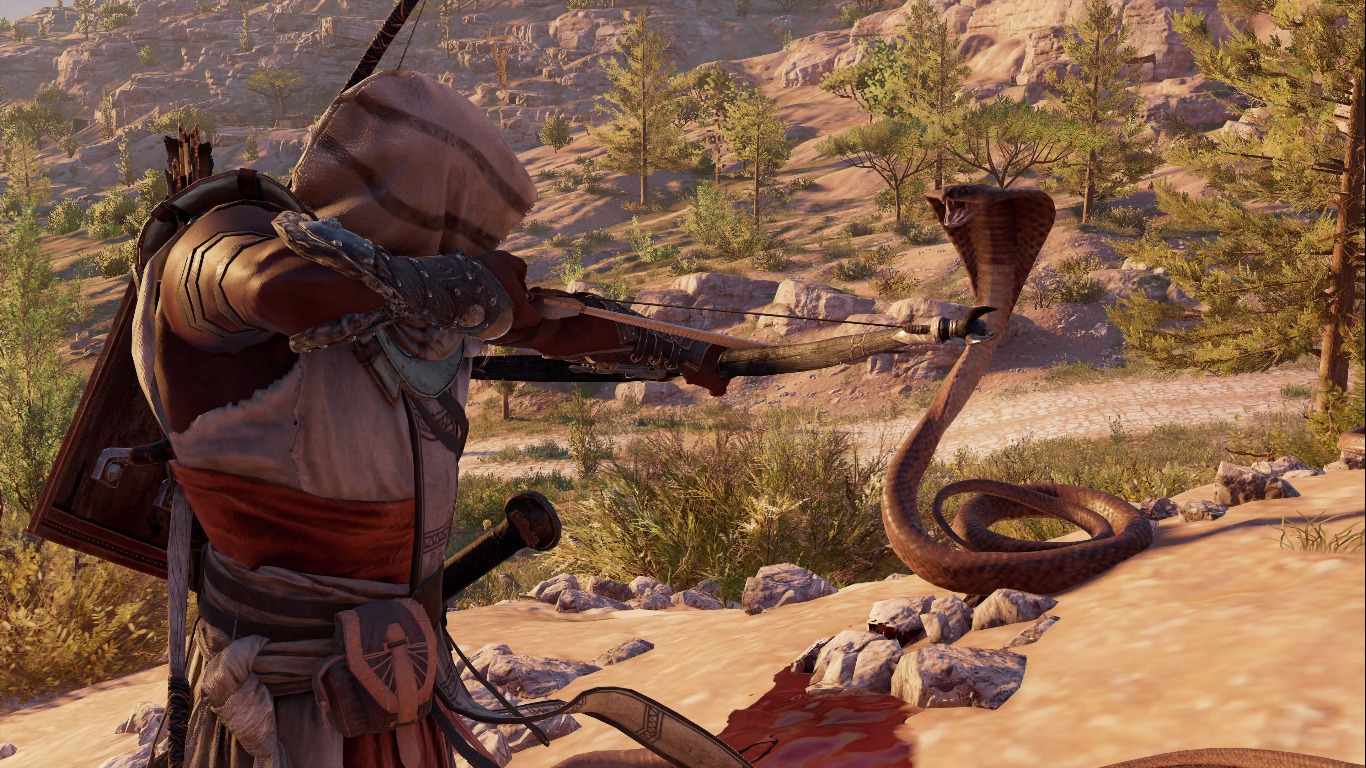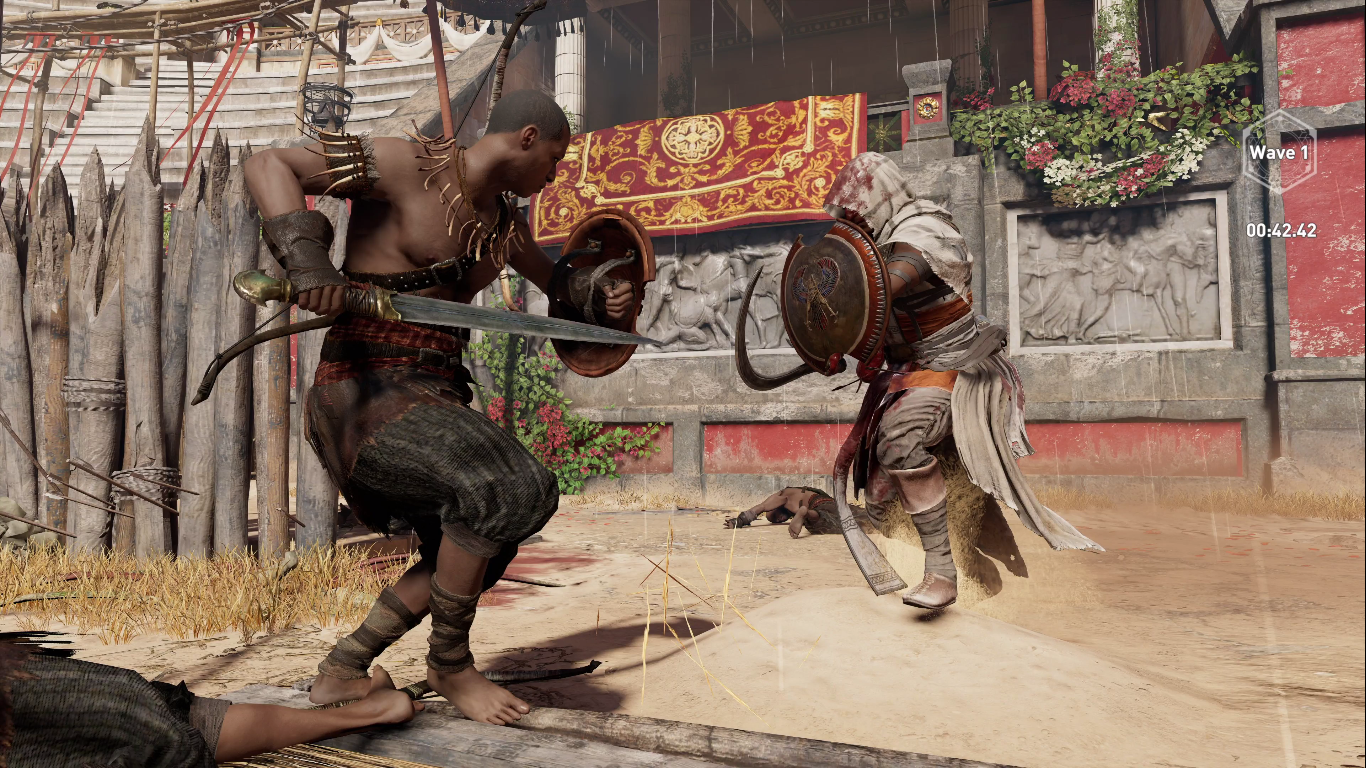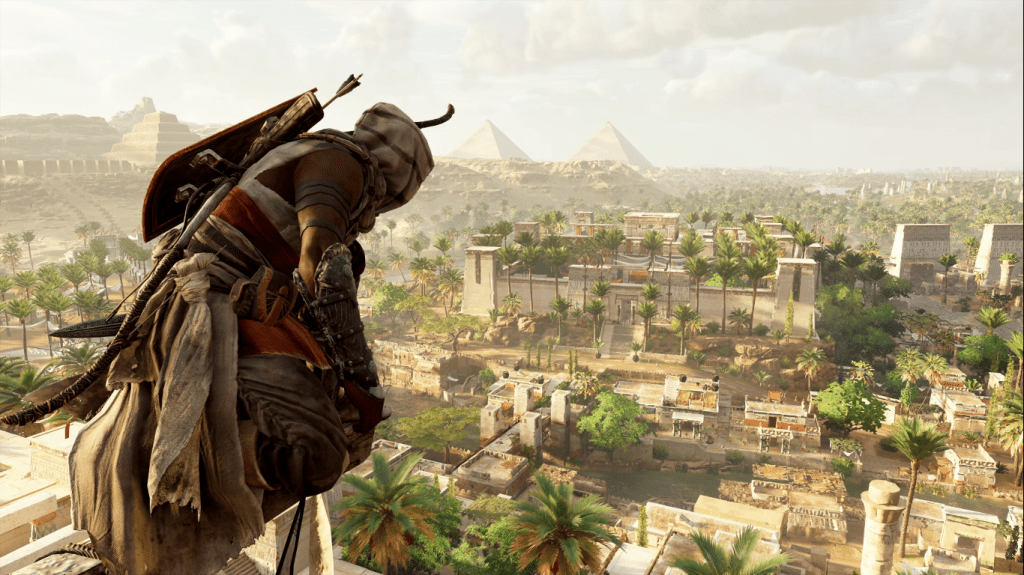Assassin’s Creed Origins is the biggest game in the series and its vastness can be quite overwhelming. But you don’t have to travel through Ancient Egypt blind. To help you become an assassin and establish the iconic Brotherhood, I’ve highlighted six tips that will help you acclimate to Origins’ new world and come out on top.
Assassin’s Creed Origins Guide: Don’t Do Missions Above Your Level
The level-specific mission structure will often keep you from advancing in the story and, no matter how tempting it is, don’t go into a mission under its suggested level. While you may think you can just be extra sneaky or adept at dodging to counter the level discrepancy, your battered corpse will say otherwise. Regular guards above your level are incredibly resilient but technically possible to kill with enough persistence. Overleveled captains and commanders, however, are nearly unbeatable since they are are meant to challenge you at the recommended level and will shrug off everything you throw at them if you don’t meet the level threshold. You’ll end up spending more time stubbornly trying to beat a mission you’re underleveled for than you would grinding out side missions.
Assassin’s Creed Origins Guide: Space Out Your Side Activities

To always keep near the recommended level, you should regularly be seeking out side activities. “Regularly” is the key word there since you’ll often have to grind experience for multiple hours if you try to blaze through multiple campaign missions in a row. Completing side quests after every main mission lessens the grind and keeps the game moving at a steadier pace. Completely conquering outposts (don’t forget to grab the treasures too!), synchronizing viewpoints, and gathering loot chests are all fast ways gain experience as you move from objective to objective. Egypt is a big place with an even bigger list of things to do and pacing yourself is the best way to experience it.
Assassin’s Creed Origins Guide: Utilize Environmental Hazards
It’s one thing to be aware of the many ways Egypt is trying to kill you; it’s another to use those same hazards against your opponents. Red oil pots — ancient Egypt’s red barrell equivalent — are incredibly dangerous… and incredibly flammable. While some oil pots conveniently near open braziers, you’ll have to find creative ways to light the others ablaze like tossing your torch at them or moving near a flame while aiming your bow to create a fire arrow. You can even throw your lit torch on the ground and use it as an improvised fire source to creatively light your arrow. Fire can devastate enemy forces but your pyromaniac plan backfires, be sure to press the dodge button three times to roll around and snuff out the flames.
Also: Assassin’s Creed Origins Review – Egyptian Addiction
Animals can be dangerous but useful tools too. Caged wildlife can be freed to wreak havoc once you shoot an arrow into the front door of their pen. Snakes aren’t as helpful or universal as lions or hippos but they can still distract enemies and give them a good scare, granted you can find and break the giant pot they are hidden in. For a more controlled, consensual approach, you can also buy the skill that lets you tame and control wild animals. While your furry or scaled friends may not kill every guard, they’ll set up a good distraction and let you move in and finish the job more easily.
Assassin’s Creed Origins Guide: Don’t Speed Through Combat

In typical Assassin’s Creed fashion, combat has completely changed in Origins and has been made much more deliberate. That’s not to say that it’s slow, but it does require a more careful, thoughtful approach. Like Dark Souls, attack animations take priority and your whiffs can be costly, which makes button mashing a bad strategy. Instead, strike after a successful parry — an upgrade you should buy immediately — or dodge and learn which defensive technique is more appropriate. Long weapons are more difficult to evade and short, fast weapons are harder to parry, so you have analyze your opponent’s loadout and adjust your strategy accordingly. Regular blocking is also important as long as you directly face your opponents since guarding only protects your front half. It can be tough to read multiple enemies at once but good positioning and a strong, intelligent defense are invaluable during sword fights.
Assassin’s Creed Origins Guide: Always be Crafting
Animals also provide useful skins and serve as the backbone for Origins’ poorly-explained crafting system. Most of the wildlife provides useful materials to scavenge but, for efficiency’s sake, you should use your eagle Senu to scout out the best targets. Marked creatures signify the animals with biggest payout, hence telling you which beasts are more worth your time and arrows. Without Senu’s helpful eye, you’ll most likely waste your time hunting worthless game and take forever to get the best gear.
Other crafting materials require different approaches. While you should always be on the lookout for land and sea convoys carrying metal and wood, dismantling your gear in the equipment menu is much faster and easier. The levelling system and constant gear drops quickly makes old weapons obsolete and selling or upgrading them at a shop usually isn’t worth the effort or payout. The most valuable crafting materials necessary for making high-level gear can only be found in forts, pyramids, and other important side missions but the more common goods — bronze, iron, and wood — can be more easily farmed.
Assassin’s Creed Origins Guide: Equip the Hood
Don’t be silly. You’re an assassin so you should look the part. Go into the gear menu, hover the cursor over Bayek’s outfit, and toggle it on. It’ll look better and protect your bald head from the harsh sun rays.







